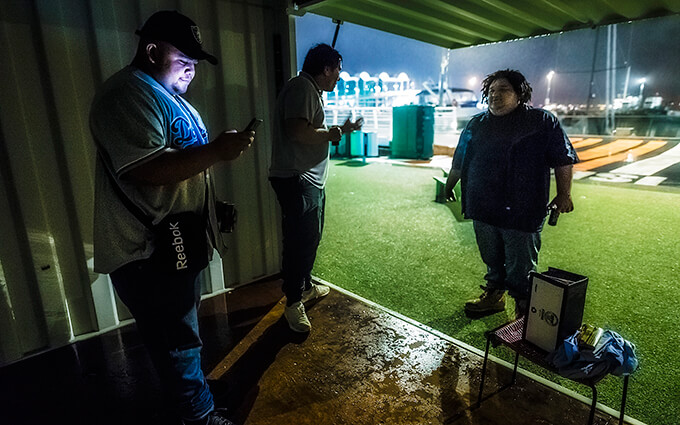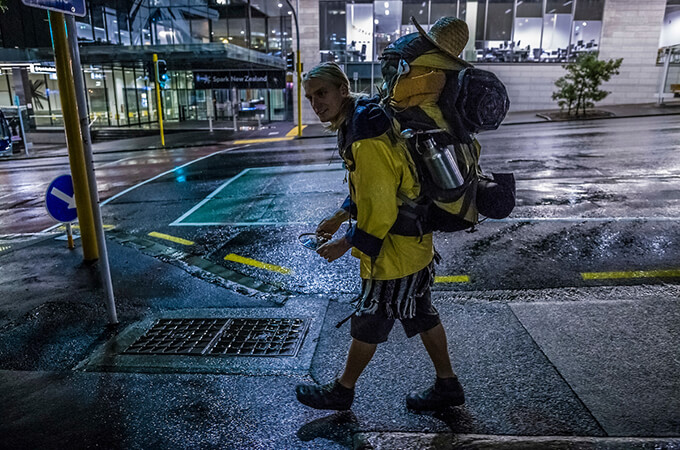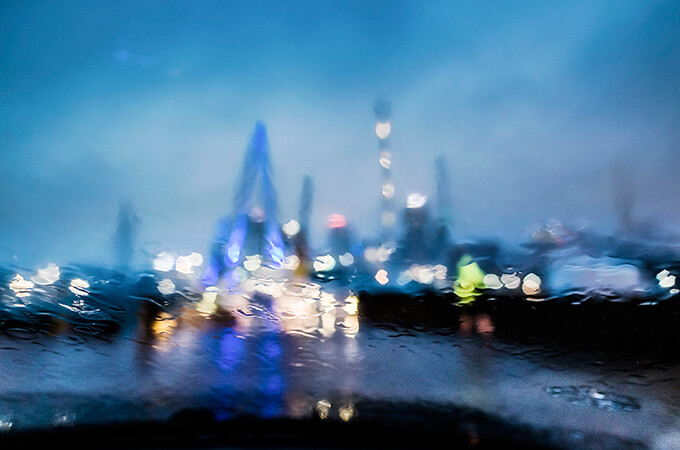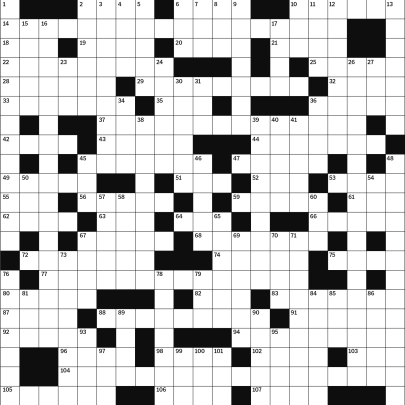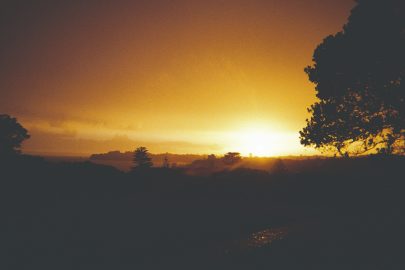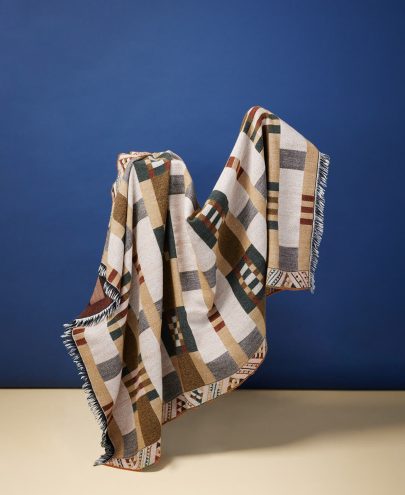Jul 9, 2017 etc
Outside the casino, the moneyed and the desperate smoked in the light of the Sky Tower; across the street the secondary industry of the pawnshop had shuttered for the evening. A young Asian man spat heavily into an outdoor ashtray, the Pakeha woman next to him, with a lifetime smoker’s deep wrinkles, looked up from her phone in disgust. An American man in an Aertex shirt described his new cross-trainers to a female companion: “You’re a woman, you wouldn’t understand.” Adrian ducked into the toilets to try to find a hand-dryer for his camera lenses — no such luck.
We strolled down Victoria St, following a backpacker with his life strapped to his back, a fellow refugee from the activity of the CBD. His pots and pans tinkled against each other like those of a medieval peddler schlepping his wares from town to town, an impression enhanced, when I talked to him, by his German accent. I bade him good luck as he lumbered onwards, towards Ponsonby, in search of his hostel.
Britomart: looking forsaken, whipped by sheets of rain. A desultory crowd had gathered outside a club on Fort Lane, but no one I talked to had much hope for the night. On Queen St, scattered revellers, hair flattened to scalps, skidded up the wet pavement, past the homeless. I asked one man, Sonny, how he ended up on the streets. His voice was so soft I could barely hear his response, his eyes not once meeting mine: “First I was home, and then I was here.” Fabio, a kerbside philosopher, was asking passers-by for a lighter. I fished mine out and he lit his smoke. He was Brazilian. I asked him what he was doing in New Zealand. “I’m so lost in life that I came here, you see?” Queen St was wet, almost abandoned, distinctly purgatorial. I could certainly see.
Back on K’ Rd, pockets of nightlife formed around the bars. Outside Family Bar, a drag queen held court. Others milled about, blinkered by their phones, oblivious to those around them. Cigarette smoke billowed from the outdoor deck. A man was pitched out of the bar and through the crowd, followed by a hail of expletives, which he answered with his own volley of threats as he flashed what he claimed to be a council swipe card. “I can actually have their licence cancelled,” he told me.
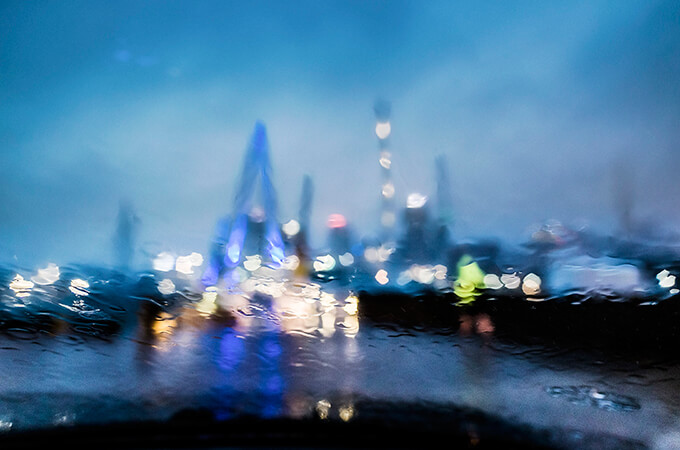
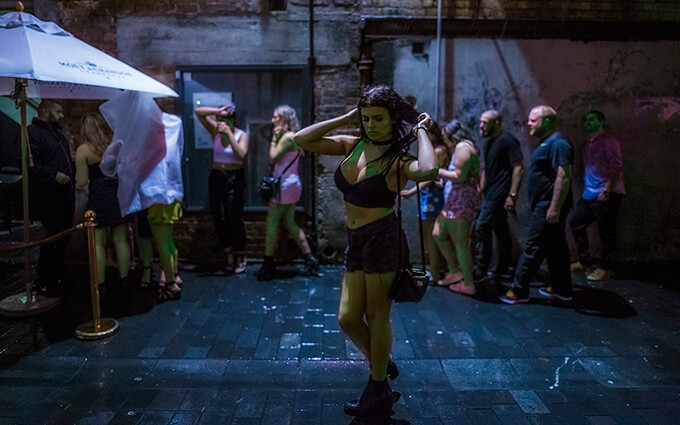
The rain stopped and I paused at Victoria Park’s western edge to stuff my jacket, sopping, into my bag, an act of hubris I was to pay for later. The city, beyond the empty skate park, was inordinately pretty, the Sky Tower be- and then re-headed by the wispy cowls of cloud moving across it, foregrounded by the humming motorway. With the distance, the skyline heaped on the horizon, the city seemed a place of potential, a grand experiment, the minutiae of its streets and all their happenings merely hypothetical.
A kind of psychic distance separates the nightwalker, too, from the city, even as you stroll its streets. Unfortified by booze, you exist on a different plane from those around you, insulated also from the usual circadian rhythms of urban life. You join, albeit briefly, what Matthew Beaumont, the author of Nightwalking: A Nocturnal History of London, calls “all the city’s internal exiles”: “The lost, the lonely. The sleepless, the homeless.” Or so I reflected as I explored a forlorn Silo Park — the boats a flotilla of money, the silos big and forbidding against the just-cleared sky — entranced by the fleeting and pure solitude of the people-less city space. In its emptiness, it felt like mine alone.
Others were seeking the same. A middle-aged woman, slightly unsteady on her feet and in her speech from a 60th birthday party upstairs at ANZ Viaduct Events Centre, smoked a solo cigarette. The strains of “Pretty Woman” were audible from the party. The Catherine bobbed gently against the wharf, a movie on the small TV dully visible through the salt-streaked windows of the cabin. I lingered until the lone inhabitant noticed me and came to investigate the dark figure peering into his space, responding to my questions with a gruffly barked, “Why?” His young crewmate below deck was more forthcoming as he went about his chores. The Catherine was from Tauranga, and they were fishing for swordfish. I asked what they were doing here. “Hiding from the weather.”
Albert Park was deserted, and lovely. The sweet aroma of marijuana hung faintly in the air, the furrowed trunks of the Moreton Bay figs looked alien and deformed in the glistening light. It was nearly 3am. The night, to borrow from Percy Shelley, made a weird sound of its own stillness. The rain was just a vague patter, and I was soaked through, so I sat on a wet bench and watched the fountain falling. I had lost Adrian, with a plan to meet later. A call-and-response, a high-pitched “chahoo”, echoed first from one side of the park and then the other.
Wandering back down towards Queen St, I ran into the young man responsible for one end of the exchange. He shook my hand as we passed, as if our shared presence in an inner-city park after 3am implied the necessary familiarity. He had some advice, unasked for. “Be careful in town,” he said. “Too many Islanders starting trouble.” He carried on: “Fuck the bitches, I just wanna dance.” Then, working into a rhythm: “Forget about the pussy, I just gotta get that money.” He rubbed his fingers together to signify cash, turned on his heel, and disappeared into the park, bleating a fresh “chahoo” as he went.
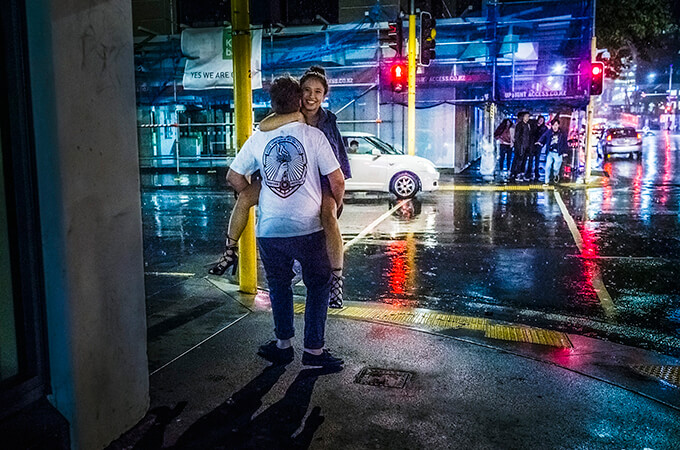
As a month’s worth of rain fell on Auckland in less than 24 hours, Metro went on a dusk-to-dawn ramble through the central city.
It wasn’t supposed to be like this. The plan was to spend from dusk until dawn in the CBD, observing the city and its moods as I sole-shuffled along its streets on a typical weekend night. But the meteorological vagaries that govern Auckland ordained something else: it was not just a rainy night; it was a historically rainy night. I spent the afternoon watching the rain from the confines of my Kingsland home, begging that each slight let-up was a portent of a cloudless night ahead and digging through books to find anything to help furnish perceptions of the night. As I stepped out, the rain freshly heavy, all that came to mind, neutered by circumstance and turned into a prosaic description of the night to come, were two lines by Robert Frost: “I have been one acquainted with the night. / I have walked out in rain — and back in rain.”
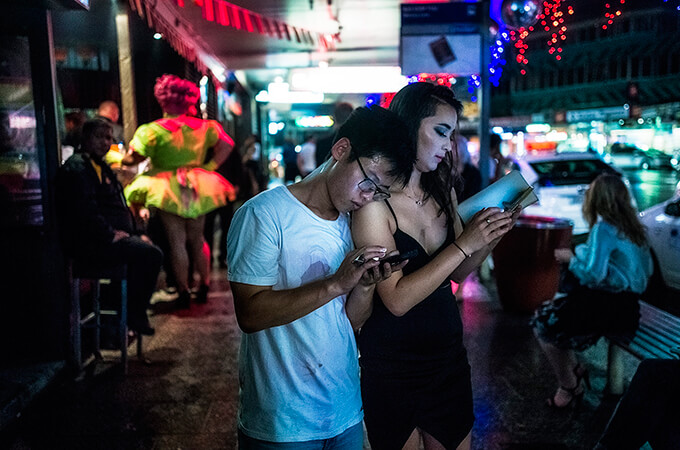
A car, doors open, dominated Queen St, blasting Punjabi dance music to the sparse foot traffic and police vans cruising by. Four Indian men in turbans danced energetically around the car, joined by a Pakeha man — beanie instead of turban, tambourine in his hand — who danced even more energetically in their midst. Men in their best town shirts joined in drunkenly as they walked by; a young woman, not so appreciative, kicked a door closed as she passed. “Shut the fuck up,” she offered as explanation.
The man in the beanie peeled off from the middle of the group when he noticed me taking notes. Jeff, a young-looking 56, given to a high-pitched nervous giggle, had been hitting the nightclubs. “I like dancing; it’s part of my therapy.” He had suffered a neck injury in a serious mountain-biking accident several years ago. He had also, he told me, forsworn food — it had been 70 days since anything other than water and coconut oil had passed his lips. I, however, needed something much stronger, and retired to Denny’s for bottomless filter coffee and cheese toasties, while Jeff went to retrieve his tambourine from his new friends.
With the vaguest of plans, we set out, turning off K’ Rd and onto Pitt St, hood up, the rain beating a military tattoo against my skull, and then Greys Ave, heavily and prematurely dark under the well-spread arms of its trees. At its end, the light of Queen St proved too tempting, and we loped towards it through the rain.
The centre of Auckland, of course, once was all there was of Auckland, and Queen St in the rain perhaps wouldn’t have looked too unfamiliar to the author of an 1849 article published in the New Zealander who proclaimed it a “regal paragon of miry ways”. It was largely deserted: mainly people sauntering out from an early performance at Q Theatre to face the weather, and a homeless man in a narrow doorway, his belongings stacked behind him, ranting at us — I don’t know how it started, how I fell into it, or what he was talking about, other than that he was unfazed by the rain: “Don’t worry about this. This is nothing.”
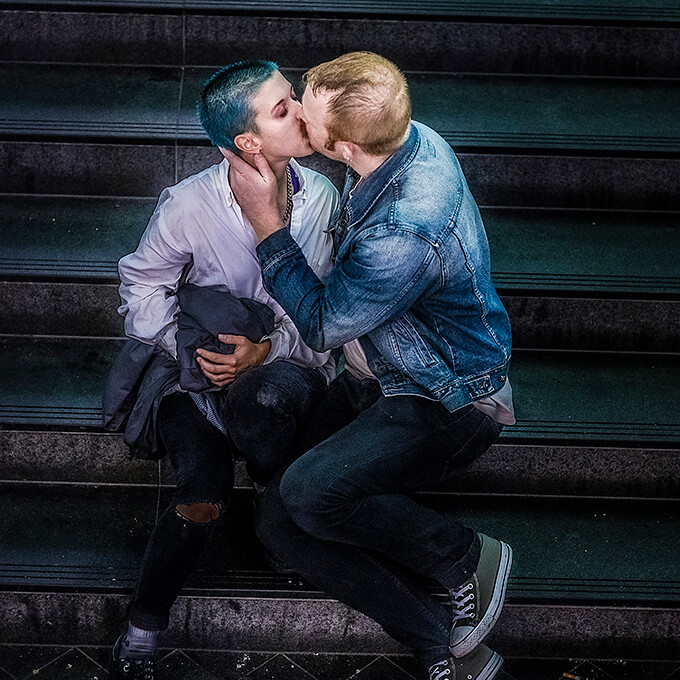
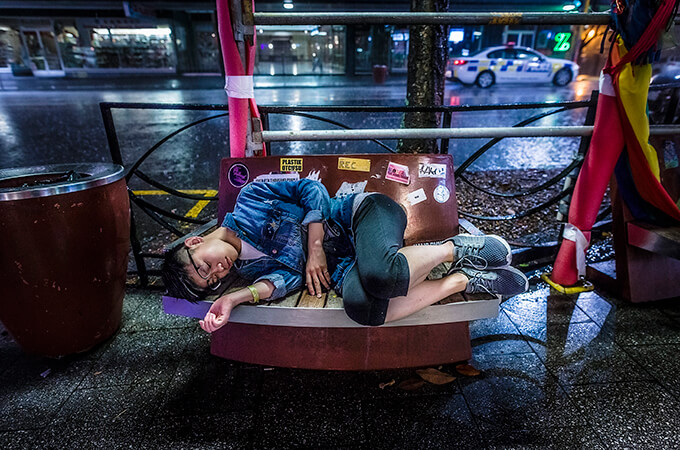
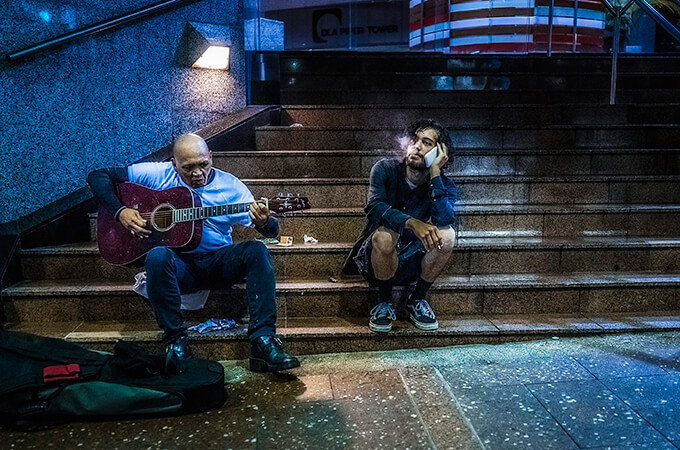
Elliott St, 4am closing time, somewhat energised by the coffee. Police were handcuffing and ushering into a paddy wagon some of those recently ejected from Bar 101, as the more sober drifted about begging for clemency for their detained mates. Adrian took photos; I just watched. A man with biceps as thick as my thighs took exception: “What are you taking photos of, cunt?” We explained what we were doing, but he was in no mood to be mollified. “I could end your life right here,” he said, edging closer, arms tensing. Adrian replied that he had no doubt of that. Our interrogator proceeded to compare us to Paul Henry; he said all news is fake news; he called us “white racist cunts”. Adrian proved far superior at talking him down; my continued eye contact acted as an irritant: “What the fuck are you looking at?” Eventually, he seemed satisfied by our joint demurrals, or perhaps it was the presence of the cops — they were just a few steps away — and he wheeled off into the night.
One of those cops was Lance Dawson, a bright-eyed sergeant I had earlier spotted on Queen St confiscating booze from a backpack and emptying it into the gutter. There were fewer people in town tonight, he said, but close to the usual number of incidents. “Everyone’s nerves are frayed from the weather.” Later, to fill a silence, he said: “Just me, or is it muggy?” It wasn’t just him.
This is published in the May – June 2017 issue of Metro.
Get Metro delivered to your inbox

/MetromagnzL @Metromagnz @Metromagnz
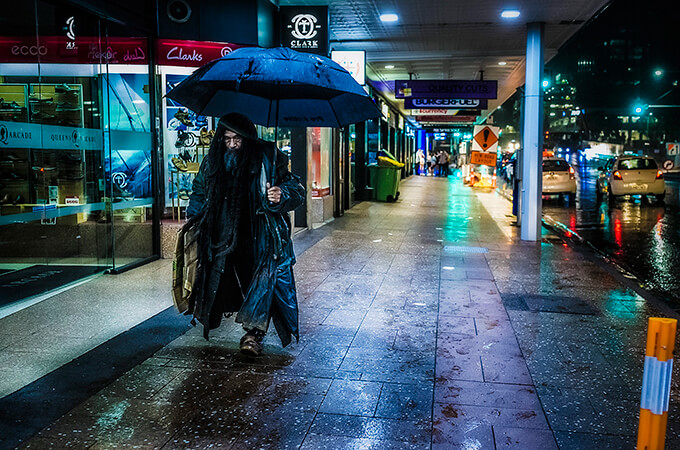
We strolled to Fort St — where Dawson told me they would continue to mop up — past crowds of dispirited clubbers looking lost in doorways. There was nothing much happening, just a middle-aged woman hissing the word “tinnies” under her breath to lure customers — I witnessed her succeed. I met Lloyd, a homeless man, shuffling meditatively down the street garbed in a tattered oilskin jacket, dreadlocks escaping from his hat. Like us, he had spent the evening “just watching people, watching everything”.
We wandered around, waiting for dawn, looking for life. Most people still on the streets were booze-locked into private miseries: a young woman being comforted in the shadow of St Patrick’s Cathedral; a barefoot man with his head between his knees, ignored by workers milling around him as they unloaded a truck, shoes (presumably his) discarded 30 metres up the road; a young man, glasses perched on his nose, sleeping peacefully on a K’ Rd bench. Elsewhere, others were finishing work. A woman in jeans and a scarf jogged out of Wellesley St’s Femme Fatale brothel, past a colleague still attired for the night, smoking on the steps.
I didn’t quite share his evaluation. And perhaps, as we continued down the street, with my hair plastered to my scalp, clothes wet through, sodden, chafing jeans already affecting my gait, I looked like I needed saving. I was handed a card by the politely evangelising Veronica of Potter’s House church, as, on the opposite corner, her brethren forced Dr Dre into the service of God: the refrain of “Still Dre” blasphemed into “We still got love for Him, He’s the G.O.D.” Thirty or 40 young Polynesian men thronged to the music under a Queen St overhang, well-muscled arms extended and bobbing metronomically to the beat, dominating the visual and aural mosaic of the early evening.
“So, we’ll see you at church?” Veronica asked, optimism evidently upped when I clarified and then jotted down the name of the church. I mumbled away from her trailing apologies, and crossed the road, where four more cards were thrust at me to disintegrate at the bottom of my pockets over the night.
We sat at the Little Turkish Café on K’ Rd, lethargically nursing long blacks. Andre turned up again, his T-shirt grubby now, and bummed a cigarette. The morning’s first runner signalled the imminence of dawn and, unable to face another walk downtown — we had walked 22 kilometres; my sodden jeans, I found later, had worn patches of hair from my inner thighs — we hopped in Adrian’s car and drove to Wynyard Quarter to watch the sunrise, or what we could see of it. Through the windshield and through the rain the city was vaguely shaped, like a Monet in monotone, the sky the same concrete grey of the evening before. It was 7.15am, sunrise, not that the sun was anywhere to be seen.
I asked him how he was celebrating his release from hospital. “Just walking around, having a bit of a party. I’ve been everywhere. I’ve been down to Burger King, been to Subway. I made a bit of money tonight.” How, I asked. “I just hustled up, mate. Stood there with my cup. Like the old days, mate. Made $40.”
He told me how he had served with the US Marines in Cambodia and Serbia. I told him it sounded implausible. “Why? I’m covered in wounds, I’m covered in scars.” And then: “I’ve spent the past three years downtown, in whatever was happening down there. Whatever apocalypse was happening there. Have you seen the city, man? There’s not much left of it. A lot of demolitions and that. So we survived all that as homeless. We were living in a lot of those buildings. I didn’t like what was happening downtown. The violence, the gangs. Got too old.”
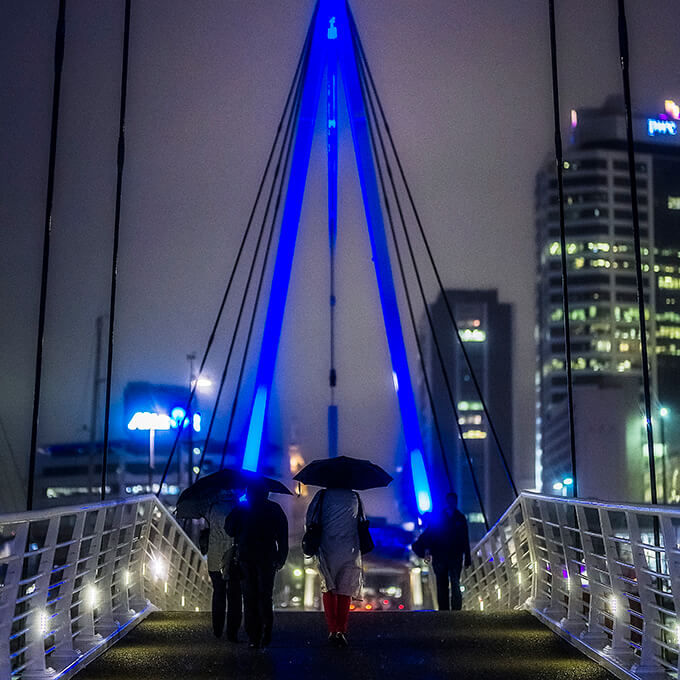
We lingered at the ASB Waterfront Theatre, Adrian tracking down a hairdryer from the costume department to dry his fogged-up lenses. I eavesdropped on the reactions to the evening’s performance, which had just finished: “They had nothing to say, and they took three hours to say it,” was my favourite overheard verdict.
We pushed on, past a trio of Samoan men hiding from the wet and drinking bourbon and cola in one of the shipping containers on the wharf. “Youse are too white to stay out all night,” one of them said when I explained what we were doing. Soon, we took our own break from the rain’s renewed fury, in Britomart Station, where we listened to a bald-headed Londoner berate the security guards for their lack of knowledge about his route home. Two other passengers sat burrowed into raincoats, heads bowed to their phones, as if in prayer. The CBD gave the impression of a sinking ship, and these were the last souls on board. “Grim, grim, grim,” reads one entry in my notebook from this interlude; Adrian’s under-the-breath “fuck, fuck, fuck” — his lenses, again — was an equally appropriate response.
St Kevins Arcade was full of the young and the fashionable taking a well-lit cigarette break away from the depths of the Whammy Bar dungeon. I saw a couple of friends but felt too tired, too removed from their night out, to engage. Instead, I rolled a cigarette on the stairs leading down to Myers Park, catching the eye of a balding, wild-eyed man who introduced himself as Andre. I put my cigarette down on the bannister to take some notes; he picked it up and began to smoke. He was wearing a pristine white Courtney Barnett T-shirt, though he had never heard of the Australian singer-songwriter, and a fine drop of clear snot bejewelled his moustache. “I had a heart attack four weeks ago,” he told me. “I’m all right. I got let out tonight.”
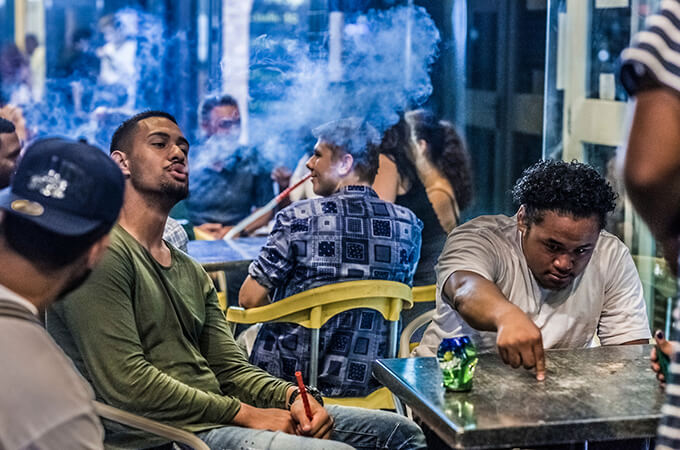
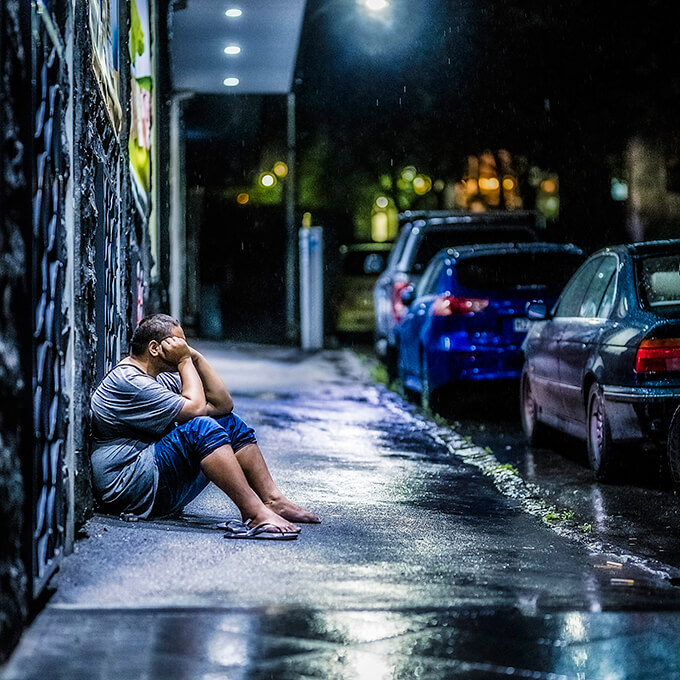
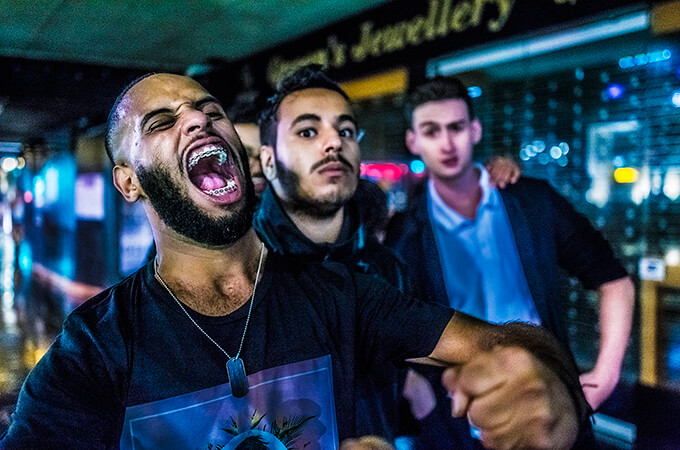
I met photographer Adrian Malloch at Peach Pit on K’ Rd for dinner — fried chicken, Brussels sprouts, confit potatoes, a pot of tea — as we watched the traffic pass, the rain fall, the sky darken by degrees towards sunset. A young family walked past clutching ice cream cones in an act of barometrical dissonance. Car alarms blared, buses throbbed. The Las Vegas girl looked down like The Great Gatsby’s T.J. Eckleburg — not quite the valley of ashes, but all she surveyed was of a similar ash-grey palette. An update on my phone from the Herald — “Here we go again: Power cuts, road closures as wild weather strikes” — didn’t augur well, but as we set off, I began to hope, with a kind of apocalyptic optimism, that Auckland in its sodden extremis might perhaps more truthfully reveal its character than it would in a more pleasant guise.
